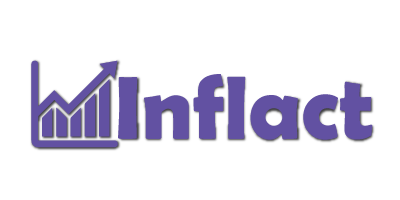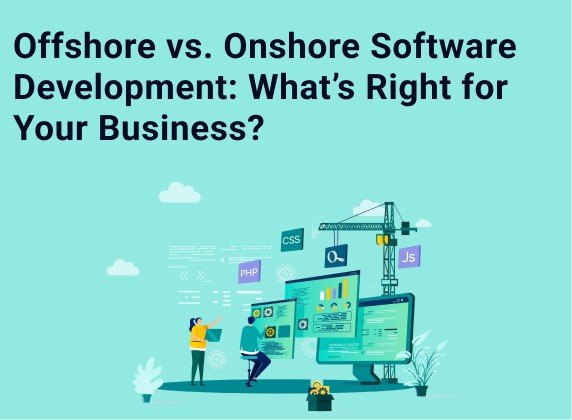Choosing the right software solution is a crucial decision for any business seeking growth, efficiency, and a competitive advantage. The debate between custom software vs off-the-shelf (or ready-made/commercial) software is ongoing, with each option offering distinct benefits and drawbacks.
This comprehensive article examines the distinctions between custom and off-the-shelf software, compares costs, offers real-world examples, and helps you determine which option is best for your business growth through customized software development services
What is Custom Software?
Custom software, also called bespoke or tailor-made software, is developed specifically for a single organization. It is designed to address unique business processes, workflows, and requirements that generic solutions cannot fully accommodate. This type of software is built from the ground up, ensuring seamless integration and optimized performance for your specific needs.
- 5 Examples of Custom Software
- Netflix – Custom streaming platform and recommendation engine.
- Uber – A tailor-made ride-sharing and logistics system.
- Amazon – Proprietary e-commerce and supply chain management.
- Airbnb – Custom booking and property management platform.
- Kogland (Healthcare B2B Marketplace) – Custom online procurement platform.
What is Off-the-Shelf Software?
Off-the-shelf software (also known as ready-made software or commercial software) refers to pre-built solutions designed for a broad market. These products are standardized, mass-produced, and ready for immediate use upon purchase or subscription. Examples include Microsoft Office, Salesforce, and QuickBooks.
- 5 Examples of Off-the-Shelf Software
- Microsoft Office – Productivity suite (Word, Excel, PowerPoint).
- Salesforce – Customer Relationship Management (CRM).
- SAP – Enterprise Resource Planning (ERP).
- Asana – Project management tool.
- QuickBooks – Accounting and finance software.
Custom Software vs Off-the-Shelf: Key Differences
| Aspect | Custom Software | Off-the-Shelf Software |
| Development | Built for your unique needs | Pre-built for the mass market |
| Features | Fully customizable, exclusive features | Standardized, generic features |
| Cost | High upfront investment, lower long-term | Lower initial, possibly higher long-term |
| Implementation | Longer development time | Quick deployment |
| Scalability | Easily scalable as the business grows | Limited, may require costly upgrades |
| Ownership | Full ownership and control | License-based, limited customization |
| Support | Dedicated, personalized support | Vendor-dependent, may be generic |
| Security | Tailored security protocols | Standard security may not fit all |
Following the comparison table, it is essential to examine some subtle distinctions between custom software and off-the-shelf software that can significantly impact the day-to-day management of your business, its potential for growth, and its long-term strategic positioning.
- Business Adaptation vs. Software Adaptation
One of the most fundamental distinctions lies in the integration of software into your business operations. Your processes in place will be supported by customized software, enabling you to protect the procedures and competitive advantages you developed. Off-the-shelf software, in contrast, typically requires your company to adapt to a certain inflexible set of features and limitations that may hinder processes or introduce inefficiencies if your requirements are sophisticated or unique.
- Feature Utilization and Relevance
Research shows that businesses tend to use less than 10% of the features available in off-the-shelf solutions such as Microsoft Word. This would ultimately result in more clutter and create unnecessary overhead for its users. Custom software has just the features you need, making it more usable and easier to train your team on.
- Integration and Compatibility
Custom software integrates exceptionally well into existing systems, databases, or third-party tools, as it is ideally designed to fit seamlessly into these environments. It ensures a seamless flow of data with smooth operationalization. On the other hand, off-the-shelf software may be quickly deployed but faces issues with compatibility, requiring extra middleware and manual workarounds, which can add to rising costs later on.
- Ownership and Control
With custom software, you have full ownership of the software and the source code. You can make changes to it or scale it up or down, or pivot into a different product as your business evolves, without being tied to a vendor’s roadmap or licensing restrictions. The off-the-shelf software solution is most often licensed: you don’t own it, meaning you are placed in a position of dependency with a vendor for any updates, support, or future direction of the product. This leaves open the risk that the vendor may change their terms, discontinue the product, or arbitrarily increase prices.
- Security Considerations
While security is yet another vital field in which custom and off-the-shelf solutions differ, a custom software solution provides the potential to integrate industry-specific security protocols, ensuring compliance with regulations and protecting sensitive data. On the other hand, off-the-shelf products often adopt relatively standard security measures. They may be underdeveloped for organizations with particular security requirements or those operating in complex regulatory environments.
- Scalability and Flexibility
A growing business occasions changing software needs. Custom software is inherently scalable and could be updated or improved to suit new requirements, user bases, or business models. Typically, off-the-shelf solutions have fixed limitations, and scaling up could mean costly upgrades or even more licenses, or worse, switching platforms altogether.
- Support and Maintenance
Custom software typically comes with support tailored to the client’s environment. In contrast, generic off-the-shelf software often has vendor support that may be more generic or less suitable for the particular problem. On the other hand, with custom software, you decide when to update and what to update. In contrast, off-the-shelf product updates are all at the vendor’s whim, sometimes forcing you to work around an update.
- Competitive Differentiation
Custom software can assist you in differentiating yourself from others by having functionalities and processes that no competitor currently can design using off-the-shelf software, and off-the-shelf implies that everyone, including your competition, has access to the software, so you are not able to differentiate your company through technology.
By considering the above factors, one can see that the distinction between custom and off-the-shelf software extends far beyond the mere buying decision to the very day-to-day business operations, long-term business strategy, and development. If you keep these considerations in mind, you will likely make a more informed decision that better suits your organization’s objectives and resources.
Note:- In Custom software vs. off-the-shelf cost
For custom software, there is a High initial investment but often a lower total cost of ownership over time, especially if your business requires frequent changes or unique features.
For off-the-shelf software, lower upfront costs are available, but recurring licensing, support, and potential customization fees can add up, sometimes making it more expensive in the long run.
Advantages of Custom Software
- Tailored to Your Specific Needs: Every feature is designed to support your unique processes and goals, eliminating unnecessary functions and streamlining operations.
- Scalability and Flexibility: Easily adapts and grows with your business, allowing for new features and regulatory changes without major disruptions.
- Enhanced Efficiency and Productivity: Automates tasks and integrates seamlessly with existing systems, boosting productivity.
- Competitive Differentiation: Offers unique capabilities that distinguish your business from competitors.
- Total Ownership: No recurring licensing fees, and you control updates, security, and integrations.
- Higher Security: Custom security protocols can be implemented, which is crucial for industries such as finance and healthcare.
Disadvantages of Custom Software
- Higher Upfront Cost: A Significant initial investment is required for development.
- Longer Development Time: Can take months to design, build, test, and deploy.
- Ongoing Maintenance: Requires ongoing support and updates, which may incur additional costs.
- Dependency on Developers: Future changes or bug fixes depend on your development team or vendor.
Advantages of Off-the-Shelf Software
- Lower Initial Cost: Generally, more affordable upfront, making it accessible for startups and small businesses.
- Quick Implementation: Ready to use immediately after purchase or subscription.
- Community and Vendor Support: Access to user communities, documentation, and vendor support channels.
- Regular Updates: Receive frequent updates and patches from the vendor, often at no additional cost.
- Training Resources: A wide range of training materials and user guides is available.
Disadvantages of Off-the-Shelf Software
- Limited Customization: The software may not fully integrate with all your business processes, requiring you to adapt to it.
- Hidden Costs: Upgrades, add-ons, and user licenses can increase costs over time.
- Feature Overload: May include unnecessary features, making the software complex and harder to use.
- Potential Compatibility Issues: May not integrate well with existing systems.
- Security Risks: Used by many organizations, making it a common target for cyberattacks.
When to Use Custom Software Over Off-the-Shelf
- Choose custom software if:
- Your business has unique processes or regulatory requirements.
- You need a solution that scales and evolves with your growth.
- Security and data privacy are top priorities.
- You want to own and control the future development of your software.
- Choose off-the-shelf software if:
- You need a solution quickly and have standard requirements.
- Your budget is limited, especially in the short term.
- Your processes can adapt to the software’s workflows.
- You prefer a well-supported, widely used product.
How to Choose Between Custom and Ready-Made Software
Consider these factors:
- Business Size and Stage: Startups and small businesses can benefit from off-the-shelf solutions for speed and cost efficiency. As you grow, custom software can address evolving needs.
- Budget: Weigh upfront vs. long-term costs, including maintenance, upgrades, and licensing.
- Complexity of Requirements: The more unique your needs, the more value custom software provides.
- Integration Needs: If you need seamless integration with other systems, custom may be preferable.
- Growth Plans: If you anticipate rapid growth or frequent changes, custom software offers better scalability.
- Industry Compliance: Highly regulated industries often require tailored solutions for compliance and security.
The advantages of custom software for business are felt most strongly when there is a need for differentiation, efficiency, and scalability. Netflix, Uber, and Amazon are companies that have used custom software to disrupt markets and create growth abound. For most organizations, making a strategic investment in custom software development services will yield rewards in the form of increased agility, innovative solutions, and enhanced customer satisfaction.
Final Take: Which is Better—Custom or Off-the-Shelf Software?
There is no universal answer to which is better: custom software or off-the-shelf software? There’s no single “right” choice that fits every business. What works best for you depends on what you need, how much you’re willing to invest, and what your long-term plans look like. If your business requires something quick, affordable, and reliable for general use, ready-made software may be all you need.
However, if your operations are more specific or if you’re planning for growth and want tools that truly align with how you work, custom-built software is worth considering. It gives you more control, better integration, and long-term value.
Take a step back, think about where you are now and where you’re headed. Discuss it with your partner who understands both technology and business. The right decision here can do more than just solve a problem—it can shape the future of how you work.




